|
Overview of Research
People & Projects
Publications
Awards
Photos
Alumni
Dr. Wolfe's courses
|
|
 |
|
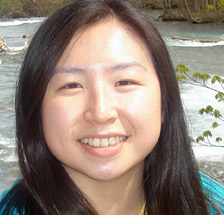
|
Linda Hu
Protein acetylation
Ph.D. Candidate
Education: Bachelor's degree in Biological Sciences at University of Notre Dame in 2000.
Work Experience: Following graduation, I worked for Caterpillar as an oil analyst in New Jersey and for Argonne National Laboratories as an analytical chemist. During this time, I decided to go into research. I have always been enthusiastic about science.
Research: I am investigating novel regulators of protein acetylation in E. coli. Currently, only a few E. coli acetyltransferases and one deacetylase are well-studied. Using a combination of bacterial genetics, biochemistry, and bioinformatics, I have identified what may be a new protein acetyltransferase. I am also attempting to identify and characterize other deacetylases |
|
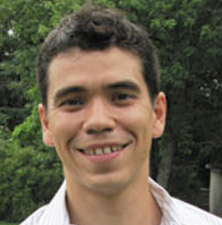
|
Bruno Lima
Protein acetylation
Ph.D. Candidate
Background: Growing up in Brazil, I always thought I wanted to be a dentist and in 2000, I actually graduated from dental school. However, the small research projects in which I participated during my years of dental school helped me realize that research was my passion. After practicing dentistry for a while, I decided to come to the US for Graduate school. My background in dentistry made me very aware of the interaction among different species of bacteria and between bacteria and their environment and how important this is for colonization and pathogenesis.
Research: The ability to quickly adapt to changes in the environment is perhaps the most important feature for the survival of a bacterial cell. This quick adaptation ability allow bacteria to not only survive the drastic change in pH as they enter the human stomach but it can also be used to determine the presence of host cells. This information is usually transduced from the outside into the interior of the cells by a group of proteins call two component signal transducing system. The simplest of these systems is composed of a sensor and a response regulator. The sensor is responsible for sensing changes in the environment and activating the response regulator, which elicits the appropriate response. Some of these two component systems can be activated in the absence of the sensor kinase. My project focuses on understanding how one of these two component systems, the CpxAR system, is activated in the absence of the cognate sensor kinase when cells are grown in the presence of excess carbon source. |
|

|
Vanessa Neinhouse
Urinary microbiome
Master's Student
Background: Received bachelor’s degree in biology from Augustana College, 2010.
I was attracted to Loyola specifically by a program they offer (Immunology and Infectious Disease) that combines both basic science and clinical research. I was excited by the concept that I could perform translational research in the lab that has direct implications in the clinical healthcare world, and it is this that motivates my work.
Research: My research focuses on antimicrobial peptides in the urinary tract. Antimicrobial peptides (AMPs) are produced by epithelial cells and and part of the body’s innate defense against microbial pathogens.
Different levels of certain AMPs in the urinary tract could have implications as to a patient’s risk of contracting a urinary tract infection (UTI). My goal is to determine the normal levels of well known AMPs, as well as identify any novel AMPs present in the urinary tract, so that ultimately we can gain a better understanding of the environment in the urinary tract and perhaps be able to identify the patients who have a higher risk of
contracting a UTI. |
|
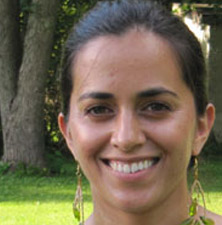
|
Arti Walker
Protein acetylation
Ph.D. Candidate
Background: My interest in science started quite late in life, during my brief
stint in the U.S. Army. I worked as an Immunohistochemist when I was
in the Army, but had very little knowledge of the science behind the
job. After leaving the Army, I decided to go back to school and finish
my undergraduate degree, at Grand Valley State University in
Allendale, MI. There, I had the privilege of meeting my first
scientific mentor, someone who I still talk with to this day. As an
undergraduate, the close knit environment of GVSU served to nurture
and engage my scientific curiosity. The experiences I had as a
research student at GVSU lead to the decision to apply to graduate
schools, culminating in my acceptance at Loyola. Like GVSU, Loyola has
a close-knit environment, which allows for a very hands on approach to
mentoring, and this has furthered my curiosity for science.
Research: I study the interactions that the global transcription factor, cAMP
receptor protein (CRP, also known as CAP) makes at acs promoter. CRP
promotes the transcription of the enzyme acetyl-CoA synthetase; Acs,
which allows for utilization of the acetate. My research aims to
understand the complex molecular interactions that occur between CRP
and RNA polymerase to promote transcription. From these studies, we
hope to uncover the finer details of bacterial gene regulation and
elucidate novel mechanisms that may regulate acs promoter activity.
|
|
 |
Bob Davis
Protein acetylation
2nd Year Graduate
Student
Background: I received my Bachelor of Science degrees in Biology and Biochemistry at the University of Iowa in 2005. After taking a short break from science, I took a position in Abbott Laboratories Diagnostics Division as a Quality Control Technician from 2007-2010. I learned a lot about the business aspect of science, as well as the intricacies of government regulation when dealing with biological products intended for human use. I enjoyed the learning experience, both in and out of the lab, but ultimately I felt that I needed more freedom to explore. I was accepted into the Loyola Biochemistry Masters program in the fall of 2010, and will be taking the plunge into the Molecular Biology Ph.D. program in the fall of 2011.
Research: Having just recently joined the lab, I do not have an official research project as of yet. During my rotation I studied the importance of K101 in the cAMP-receptor protein (CRP) at the acs promoter, which was and is a part of Arti's project. Currently I am performing preliminary work on YajL, a little-known bacterial homolog of human DJ-1. DJ-1 has many known and unknown functions, most notably related to oxidative stress, and has been implicated in Parkinson disease. YajL also seems to be involved during bacterial oxidative stress, and may be related to protein acetylation.
|
|
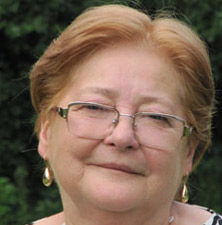
|
Bozena Zemaitaitis
Protein acetylation
Research Technican
Bozena's research studies are focused on the Envelope Stress Response in Escherichia coli. Bozena holds a Masters Degree in Chemical Engineering from the University of Technology of Szczecin (Poland) and throughout her career has worked at medical laboratories in Poland. She has also taught chemistry. Just prior to joining Dr. Wolfe's laboratory, Bozena worked at the Loyola Cancer Center in the laboratory of Dr. Nancy Muma in the Department of Pharmacology and Experimental Therapeutics. Her research in Dr. Muma's laboratory related to 5HT2a receptors. |
|
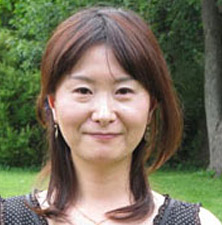
|
Noriko Shibata
Urinary microbiome
Research Technican
I have a master's degree in microbiology from Japan.
Here at Loyola, I am part of a team of translational researchers whose focus is to explore the
microbiome of the human urinary tract. Specifically, I am part of an effort to characterize the urinary
microbiomes of patients undergoing surgery for pelvic floor disorders in order to identify patients at a
high risk for contracting a post-instrumentation urinary tract infection. |
|








